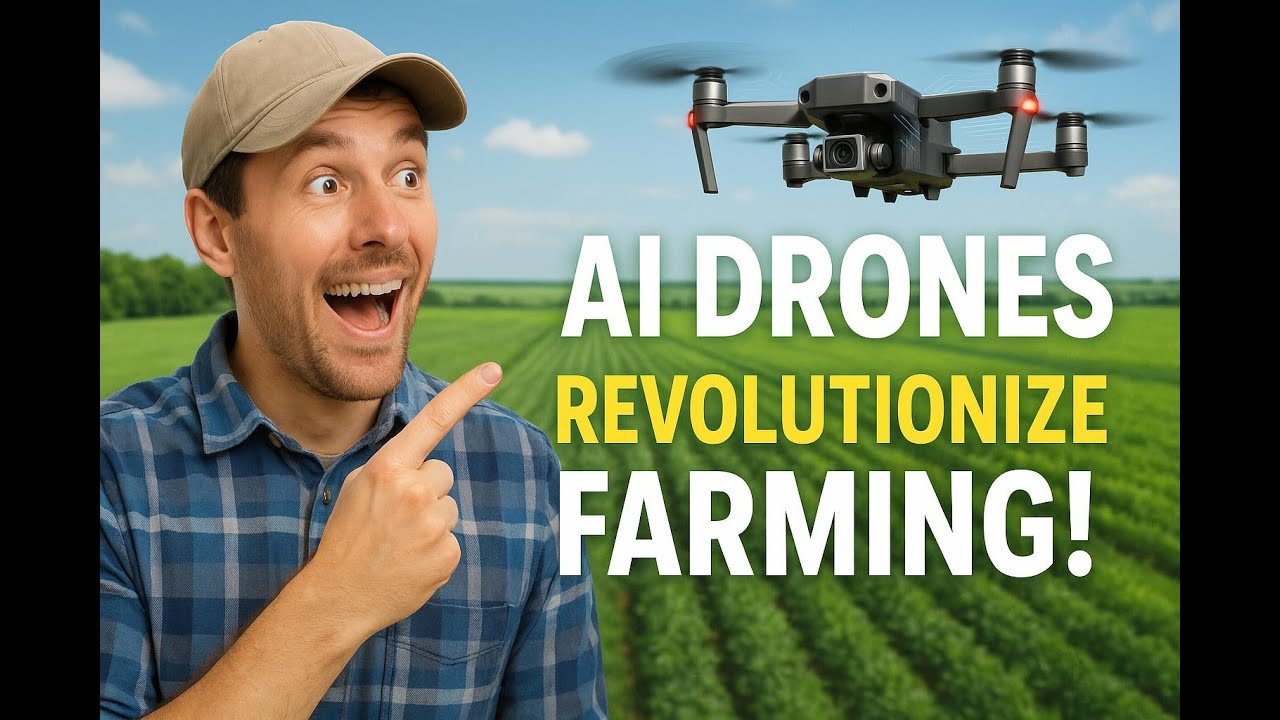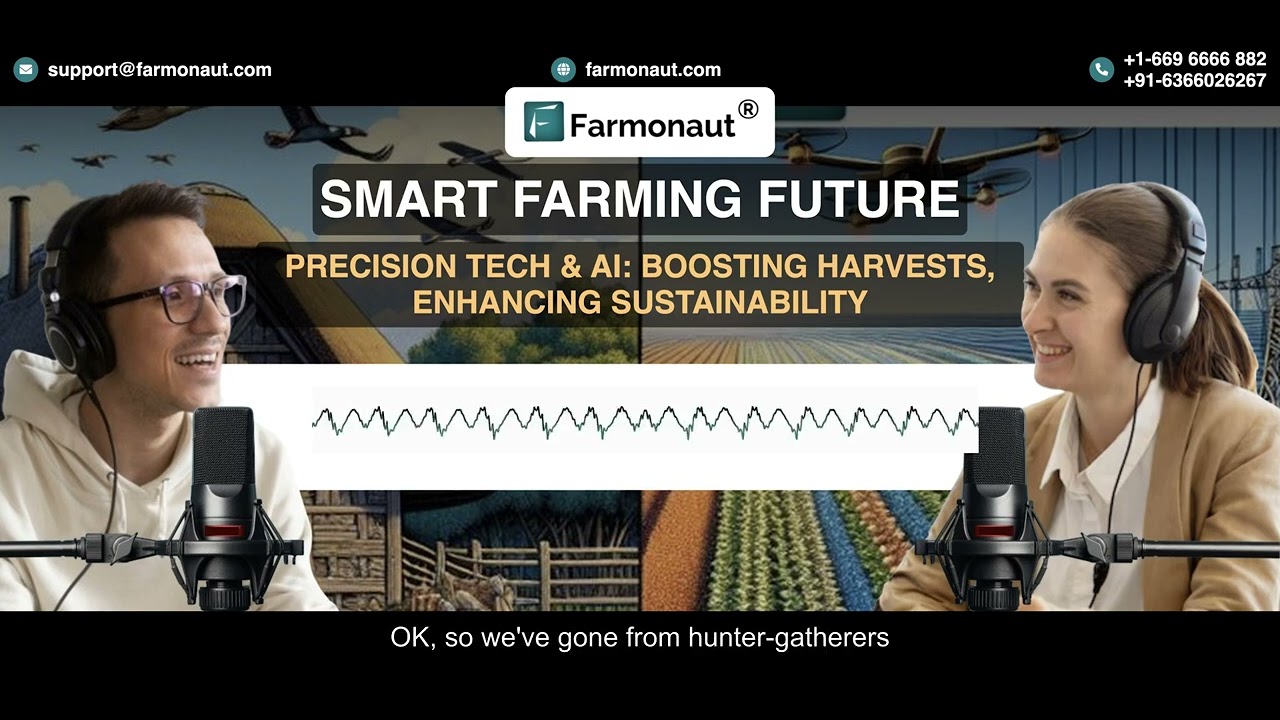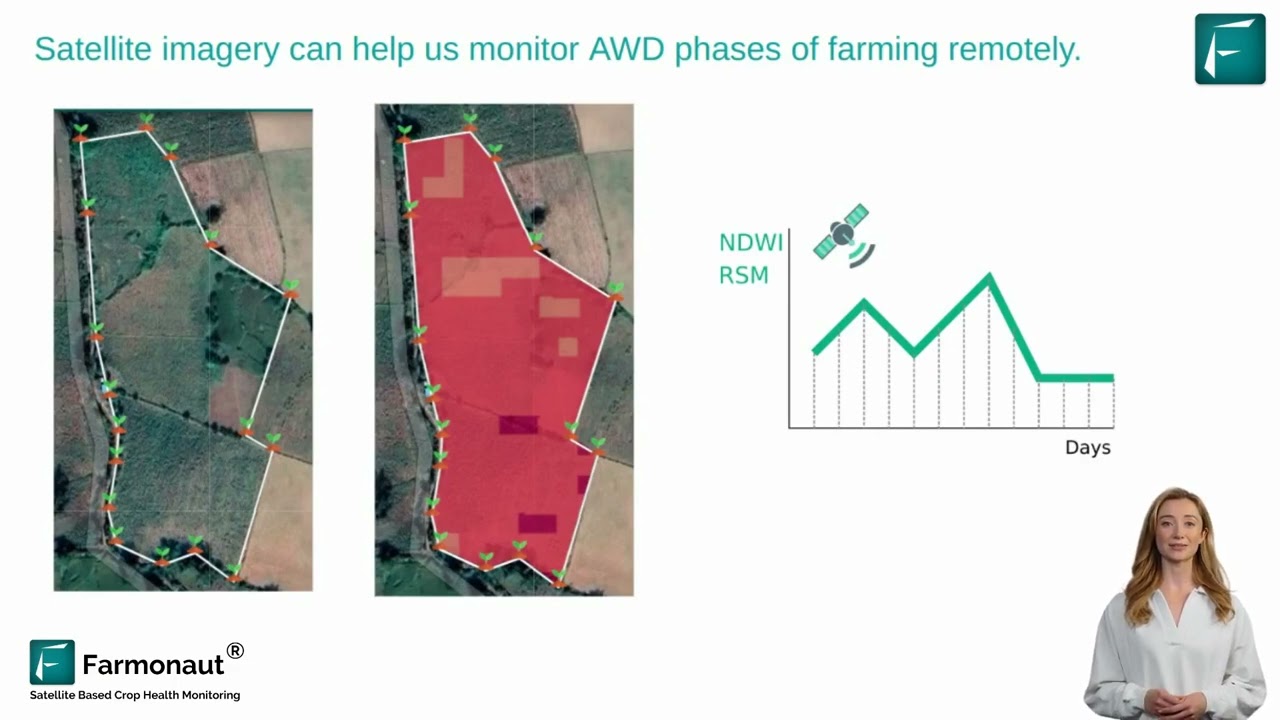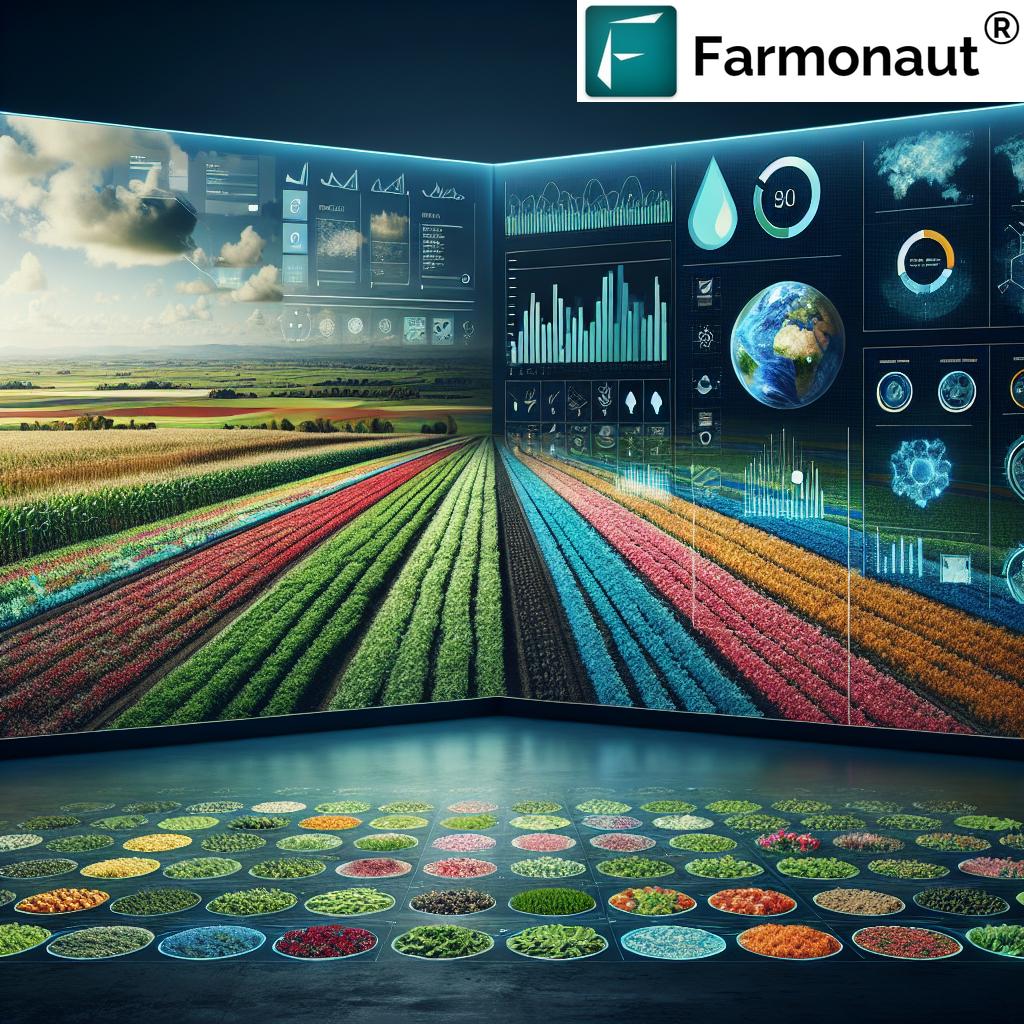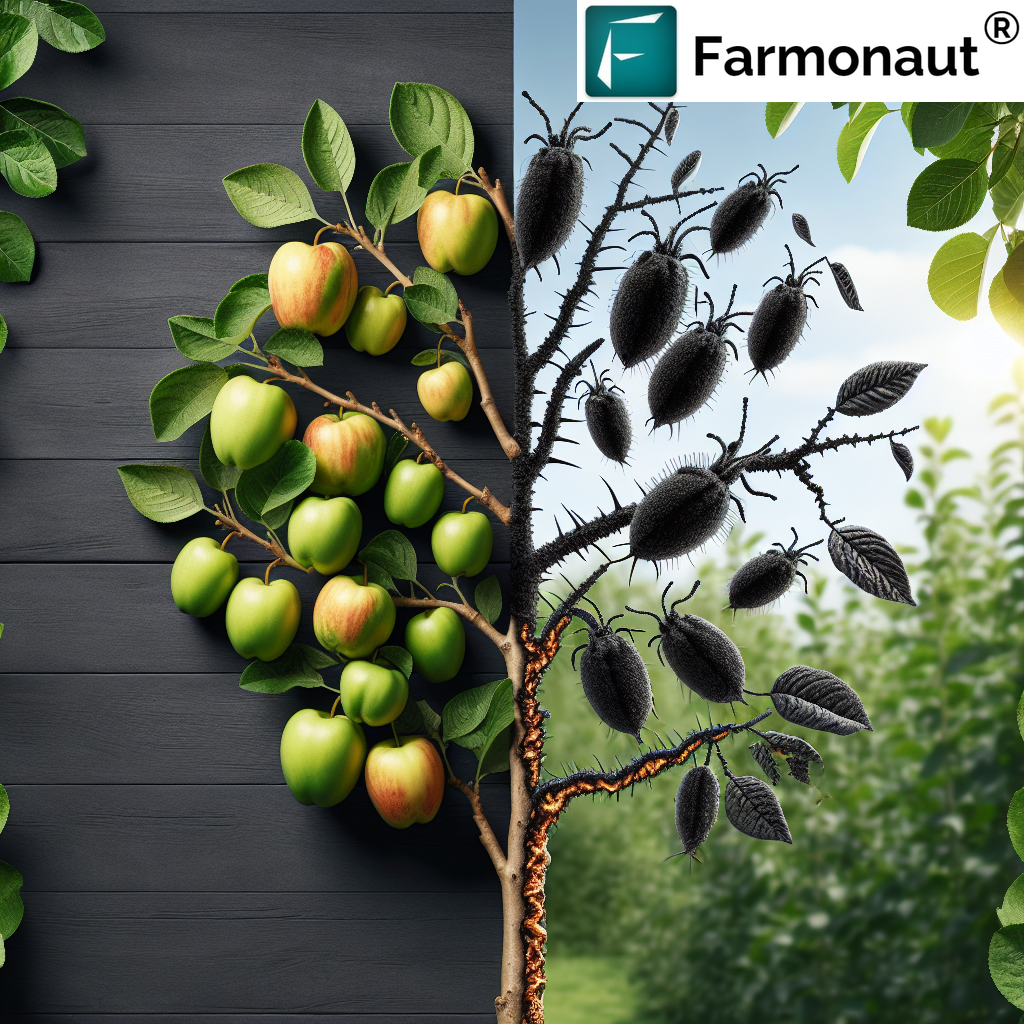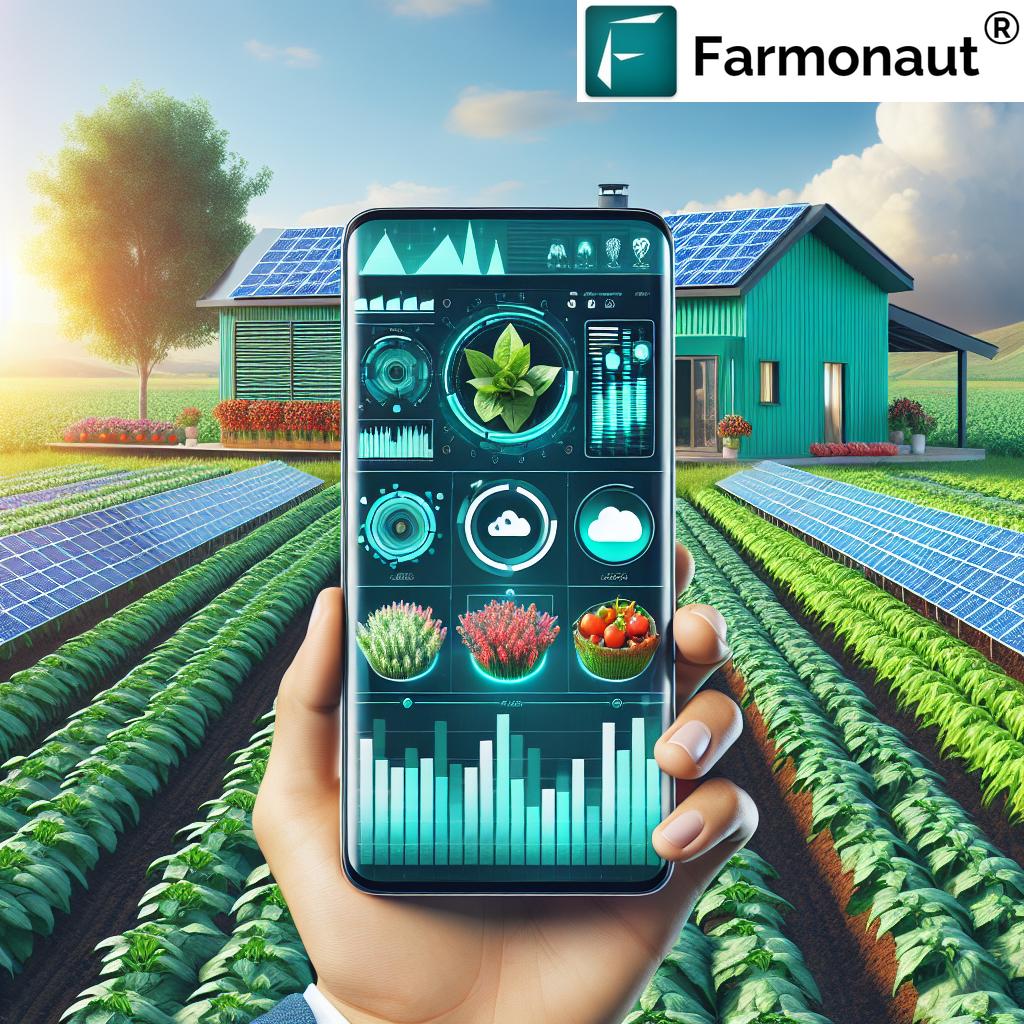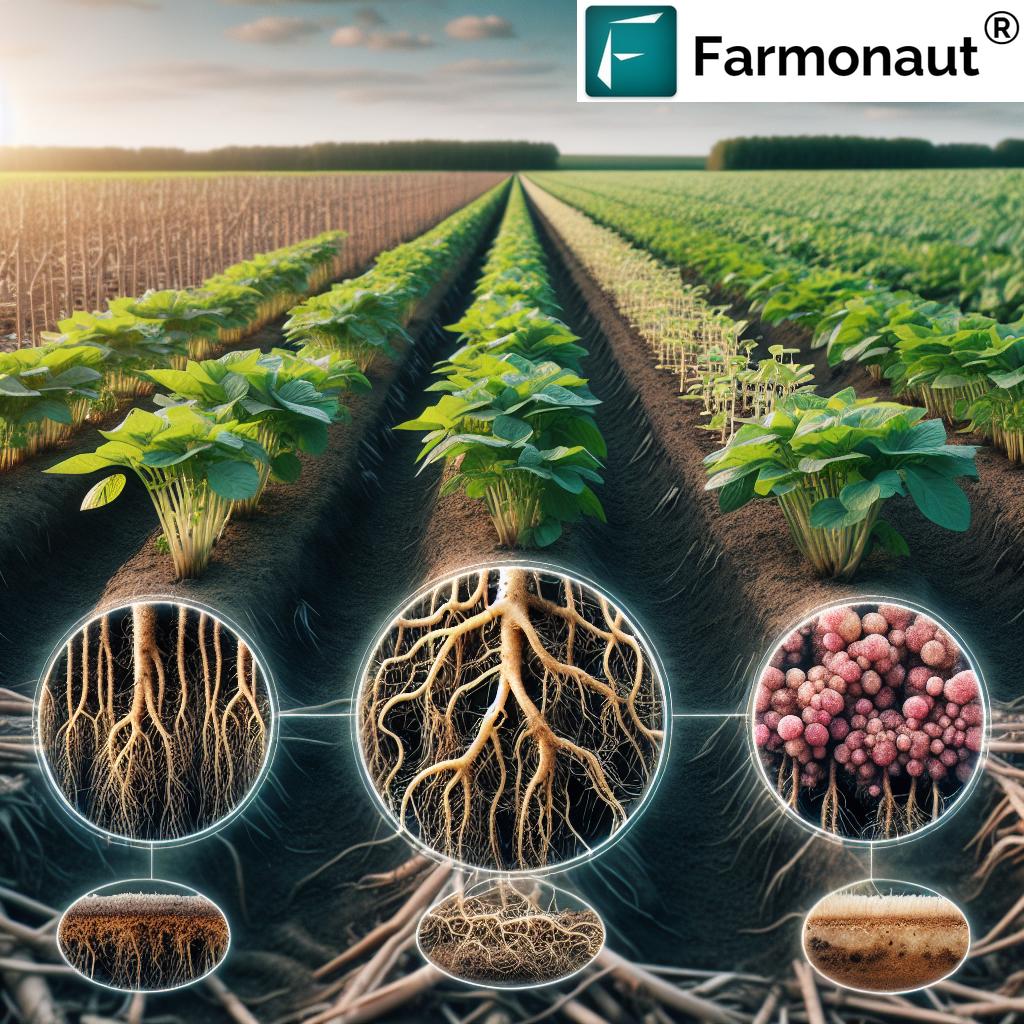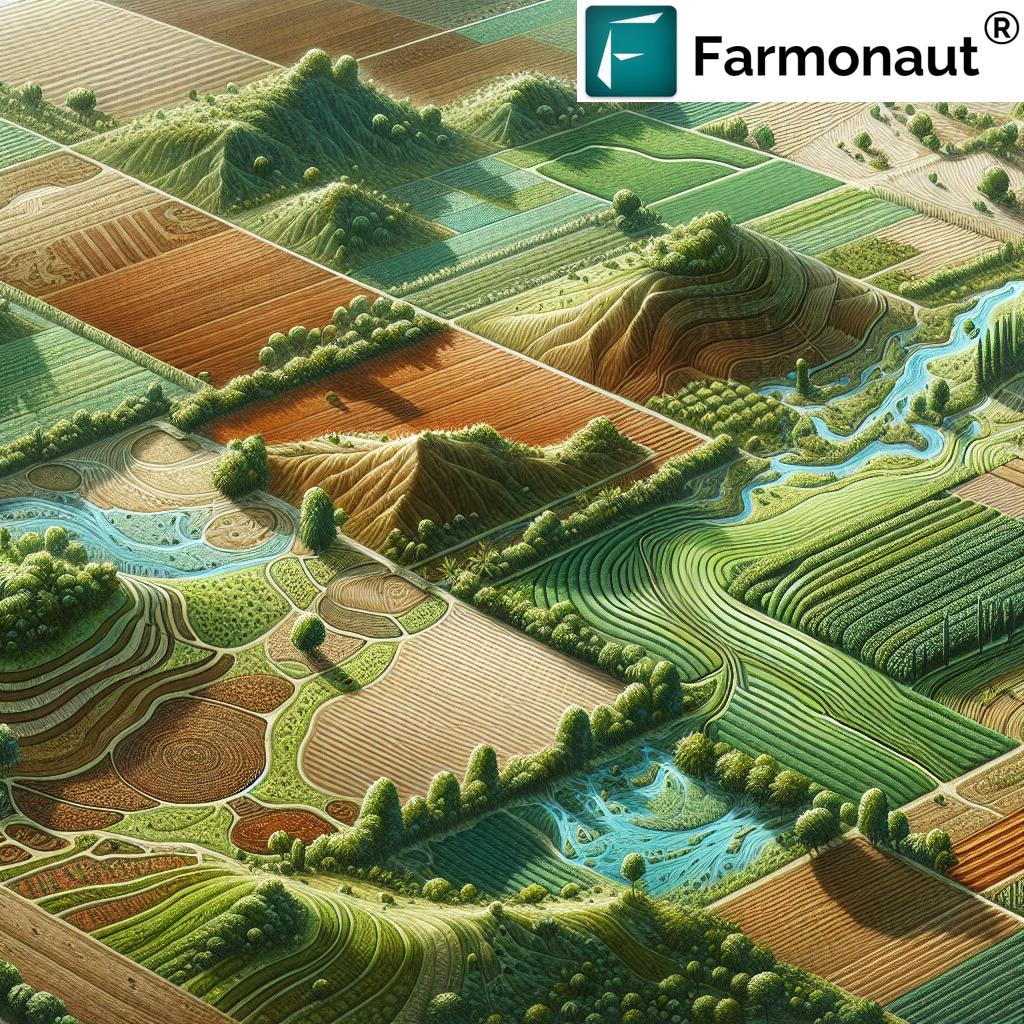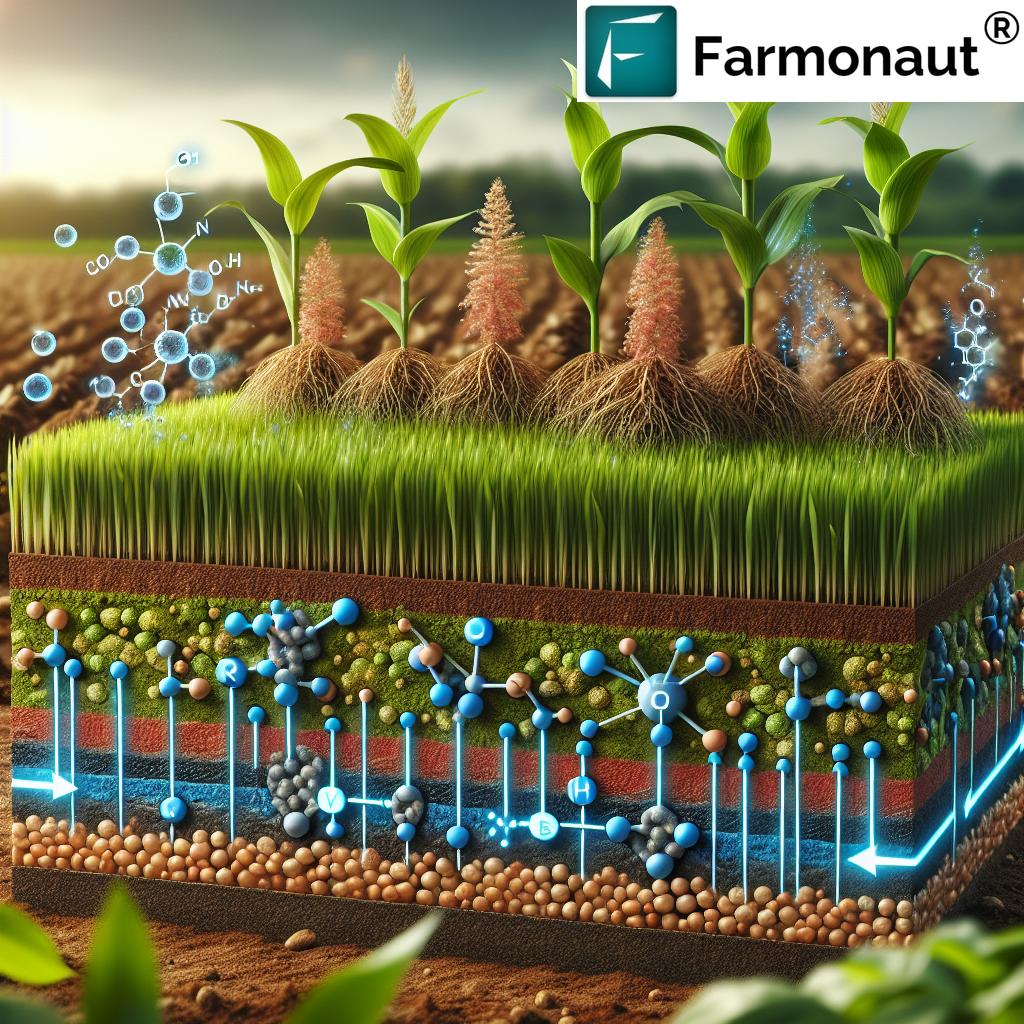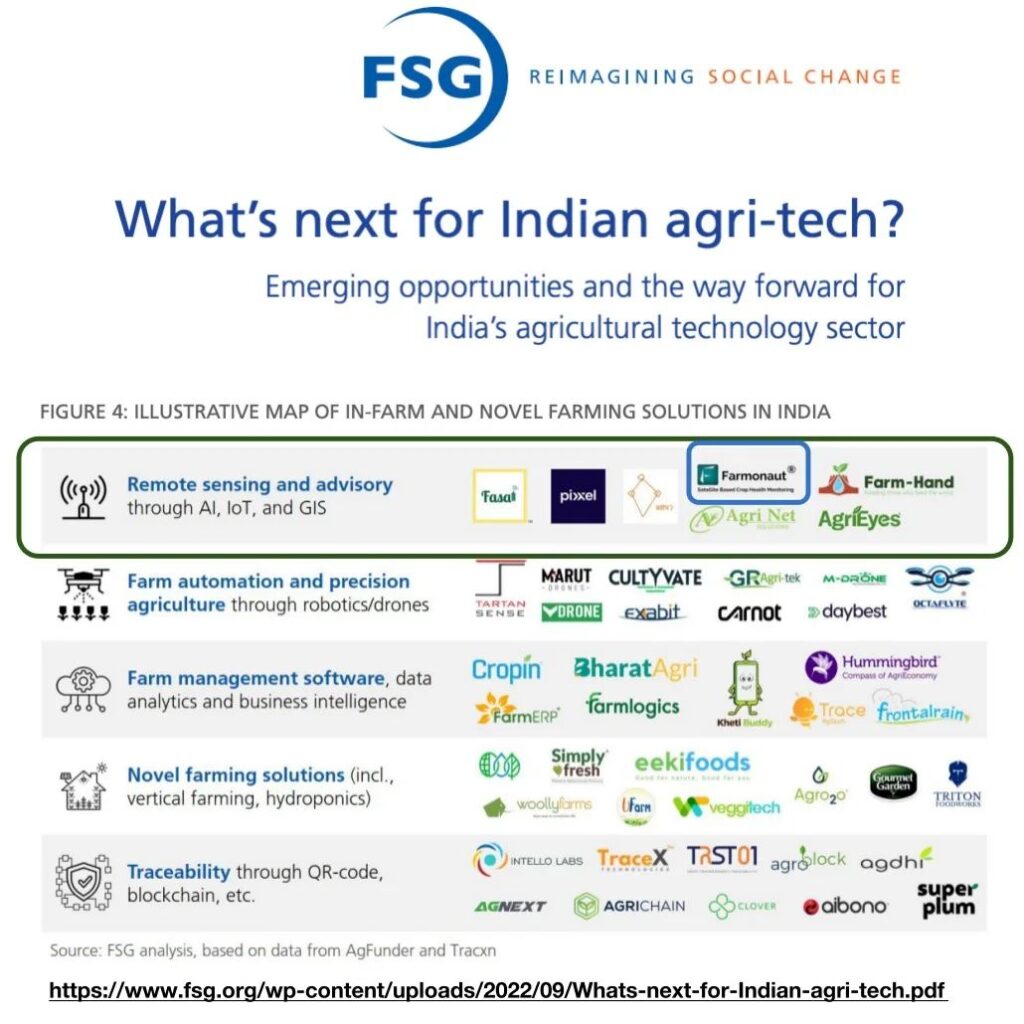Hot Topics in Agriculture 2025: 7 Trending Topics Shaping the Future of Farming
“By 2025, over 60% of farms worldwide are expected to adopt climate-smart and precision agriculture practices.”
Table of Contents
- Summary: Shaping the Future of Agriculture in 2025
- Comparative Trends Table: Hot Topics in Agriculture 2025
- 1. Climate-Smart Agriculture
- 2. Digital and Precision Farming
- 3. Sustainable and Regenerative Practices
- 4. Biotechnology and Advanced Breeding
- 5. Alternative Proteins and Diversification
- 6. Water Management and Resource Efficiency
- 7. Farm-to-Table Transparency and Supply Chain Resilience
- Bonus: Automation and Robotics
- Farmonaut: Satellite Technology Driving Agricultural Innovations
- FAQ: Hot Topics in Agriculture 2025
- Conclusion
Summary: Shaping the Future of Agriculture in 2025
As we advance into 2025, the hot topics in agriculture reveal rapid evolution driven by technological innovation, climate urgency, and shifting consumer demands. Global farming faces urgent challenges: increase productivity sustainably, adapt to climate change, and overcome resource constraints.
This comprehensive article explores the hottest trends and topics in agriculture 2025: from climate-smart farming and digital innovation to advanced breeding, alternatives to protein, and transparency. Let’s decode how new technologies, methods, and systems are shaping the future of agriculture and food.
Comparative Trends Table: Hot Topics in Agriculture 2025
| Trend Name | Core Innovation | Estimated Adoption Rate (2025, %) | Expected Impact on Yield (% increase) | Relevance to Sustainability | Example Technology |
|---|---|---|---|---|---|
| Climate-Smart Agriculture | Integration of climate resilience & low-emission practices | 60% | 15-25% | High | Precision irrigation, climate analytics |
| Digital & Precision Farming | Use of AI, satellite, drones, IoT for real-time decisions | 55% | 20-30% | Medium-High | Farmonaut satellite monitoring, drones, IoT sensors |
| Sustainable & Regenerative Practices | Reviving soil health, boosting biodiversity | 48% | 10-18% | High | Cover crops, conservation tillage |
| Biotechnology & Advanced Breeding | CRISPR, gene editing, improved crop/livestock traits | 40% | 12-22% | Medium | CRISPR crops, biotech livestock health |
| Alternative Proteins & Diversification | Plant-based, cultured and insect proteins | 25% | 7-15% | Medium | Cultured meat, plant-based proteins |
| Water Management & Resource Efficiency | AI-driven irrigation, smart fertigation, drought crops | 56% | 18-25% | High | Smart irrigation, NDWI mapping |
| Transparency & Supply Chain Resilience | Blockchain traceability, digital records | 38% | 8-12% | Medium-High | Farmonaut’s traceability tools, blockchain |
“Digital innovation in agriculture is projected to boost global food production efficiency by up to 25% by 2025.”
1. Climate-Smart Agriculture: At the Forefront of Hot Topics in Agriculture 2025
Climate change remains the most pressing challenge in the agricultural sector. As we look at the hot topics in agriculture 2025, climate-smart agriculture (CSA) is essential for shaping how farmers adapt to environmental change, safeguard yields, and ensure sustainability for future food systems.
Defining Climate-Smart Agriculture
CSA refers to practices, technologies, and systems that help farmers build resilience, reduce emissions, and increase productivity even as climate and weather conditions remain erratic. It’s about combining digital tools, traditional knowledge, and innovation to future-proof farming.
- Precision irrigation systems reduce water use by supplying crops only what they need, when they need it.
- Agroforestry methods combine tree planting with traditional crops, building biodiversity and sheltering soil from temperature extremes.
- Conservation tillage minimizes soil disruption, keeping carbon in the ground and letting soil health thrive.
- Improved crop varieties—often biotech-driven—are bred to withstand drought, floods, and shifting temperatures.
With over 60% of farms worldwide expected to adopt climate-smart practices by 2025, this trend is rapidly transitioning from niche to mainstream.
How Farmonaut Supports Climate-Smart Agriculture
We at Farmonaut believe satellite-based insights are game-changing for climate-smart agriculture. Our multispectral satellite imagery quickly detects soil moisture changes, crop stress, and potential drought impact. Farmers and businesses can access real-time AI-driven advisories and use satellite-based decision support to minimize risks associated with erratic climate patterns, droughts, floods, and temperature fluctuations – all at scale.
Want to unlock satellite-driven climate adaptation for your farm?
Key Benefits of Climate-Smart Agriculture
- Minimizing emissions by reducing fuel use, fertilizer and water runoff, and soil disturbance.
- Building soil carbon stores: Climate-friendly practices increase the amount of carbon kept in soil, supporting carbon footprinting and sustainability reporting. Check out how Farmonaut helps with carbon footprinting and reporting.
- Making farming more resilient to shocks, like heatwaves and droughts.
- Raising farm productivity and profits by aligning crops with local climate and management conditions.
2. Digital and Precision Farming: Digital Innovation Leads Hot Topics in Agriculture 2025
Digital transformation is revolutionizing how we farm in 2025. Data-driven, precision agriculture is one of the top trending topics in agriculture 2025, enabling farmers to make informed decisions at every step.
Core Elements of Digital and Precision Farming
At the heart of digital innovation in agriculture are tools like GPS, drones, satellites, AI, IoT sensors, and big data analytics. These technologies gather a wealth of real-time data:
- Soil health and moisture mapping
- Crop growth and canopy monitoring
- Pest and disease activity forecasting
- Fertilizer and irrigation optimization
This precision approach allows accurate input management (fertilizer, water, pest control), which maximizes crop yields while minimizing waste and environmental impact. On modern digital farms, AI-driven farm management systems offer predictive analytics—helping to anticipate risks and implement timely solutions.
Farmonaut’s multispectral satellite imagery and AI-based recommendations are enabling farmers and agricultural businesses to turbocharge precision farming—limiting resource wastage and increasing overall efficiency.
Key digital precision technologies include:
- Satellite-based crop monitoring – Detects stress, diseases, and nutrient needs days before the naked eye can see changes. Learn more about Farmonaut’s large-scale farm management capabilities for enterprise operations and farms.
- IoT sensors – Measure soil moisture, sunlight, temperature, and nutrient levels in real-time.
- Drones for aerial imaging – Deliver high-resolution data to support variable rate application of inputs.
- AI and machine learning – Analyze complex datasets and offer predictive, actionable insights for better yield and risk management.
- Farm management APIs – Seamlessly integrate satellite & weather data with any farm ERP tool. Check Farmonaut API for seamless data integration and the developer docs.
Benefits of Digital & Precision Farming in 2025:
- Boosts yields by 20–30%*
- Reduces costs, labor, and environmental input
- Supports sustainable resource management
- Enables early detection of crop problems, saving time and money
*Based on comparative estimates in leading agricultural regions as digital investments scale up.
3. Sustainable and Regenerative Practices: Core Focus Among Trending Topics in Agriculture 2025
As consumers and markets increasingly demand eco-friendly, sustainable food production, regenerative agriculture stands out as a core focus among hot topics in agriculture 2025. The headline goal is to restore soil health, boost biodiversity, and sequester carbon—moving beyond “do less harm” to “actively improve the land.”
Principles of Regenerative Agriculture
- Cover cropping: Reduces erosion, rebuilds soil organic matter, and absorbs surplus nutrients.
- Crop rotation: Breaks pest cycles and stabilizes yields.
- Minimal tillage: Preserves soil structure and enhances carbon storage.
- Organic amendments: Utilizing compost and green manure to improve nutrient cycling.
- Agroecology: Harnessing natural ecosystem processes for effective pest, nutrient, and water management.
These regenerative practices not only raise productivity but also contribute significantly to carbon sequestration (removing CO2 from the atmosphere) and help restore ecosystems. This keeps agriculture central to global efforts to reduce emissions, making climate-friendly farming financially and environmentally rewarding.
Satellite Tech for Regenerative Farming
Through satellite imagery and AI-driven analytics, farmers can measure soil vitality, plant cover, and carbon footprint changes with ease. With Farmonaut, users gain access to reliable data to monitor regenerative progress, track emission reductions, and report sustainability to stakeholders or regulators. This is vital for carbon markets, ESG reports, and corporate transparency.
Explore how Farmonaut powers carbon footprinting and impact monitoring
Regenerative agriculture is rapidly becoming an essential business model for agriculture in 2025 and beyond, deeply aligned with hot, trending topics globally.
4. Biotechnology and Advanced Breeding: A Key Pillar of Hot Topics in Agriculture 2025
The rise of biotechnology and advanced breeding is transforming both crop and livestock production, marking a vital milestone for agriculture in 2025. This trend focuses on developing improved crop varieties and healthier livestock—faster and with greater precision than ever before.
Genetic Innovation in Crops & Livestock
- Gene editing technologies like CRISPR allow pinpoint changes in crop DNA—creating drought-tolerant, pest-resistant, and nutrient-enriched varieties in a fraction of the traditional breeding time.
- Biotech in livestock focuses on disease resistance, improved reproduction, and better feed efficiency—helping reduce the environmental footprint of animal agriculture.
These advanced methods are already reducing chemical dependency and resource usage, while boosting resilience against increasingly unpredictable weather, pathogens, and market shocks.
Key Benefits for Farmers and Food Systems:
- Faster response to emerging climate threats
- Higher, more reliable yields
- Reduced input costs and less environmental impact
- Nutritional improvements in food for consumers
Precision breeding and biotechnology are positioned as key drivers in modern agriculture, ensuring that food security and environmental health advance in parallel.
5. Alternative Proteins & Diversification: Diversifying Hot Topics in Agriculture 2025
The rising demand for sustainable, ethical, and health-conscious foods is fueling a shift in global agriculture. Among the most innovative hot topics in agriculture 2025 is the adoption of alternative proteins and agricultural diversification.
Shaping the Protein Landscape: Key Trends
- Plant-based proteins: Legumes, pulses, grains, and soy products fuel a growing “alt-meat” market.
- Cell-based (cultured) meat: Bioreactor-grown proteins offer an animal-free meat solution.
- Insect proteins: Sustainable protein sources for animal or human consumption (e.g., mealworms, black soldier fly larvae).
- Diversifying crops and protein sources: Increasing resilience, lowering reliance on resource-intensive crops/livestock, and broadening dietary choices.
This diversification trend is critical not just for sustainability and environmental impact reduction but also for food security, market resilience, and introducing new opportunities for farmers worldwide.
Benefits and Impact
- Diversifies farmer income streams
- Reduces greenhouse gas emissions (compared to conventional animal proteins)
- Addresses consumer health and ethical demands in food systems
- Promotes resource efficiency in agriculture
As more producers pivot to alternative proteins and less resource-intensive food crops, agriculture in 2025 is expected to become more resilient, sustainable, and responsive to shifting consumer demands.
6. Water Management and Resource Efficiency: A Top Hot Topic in Agriculture 2025
With global water scarcity intensifying and agriculture consuming approximately 70% of all freshwater withdrawals, innovative water management is non-negotiable. Water resource efficiency is dominating hot topics in agriculture 2025, as farmers look for new methods to adapt to unpredictable climate and resource constraints.
Major Innovations in Water Management
- Smart irrigation systems: AI-powered, sensor-driven irrigation optimizes water use for every plot and crop type.
- Rainwater harvesting: Captures seasonal rainfall for crop use, reducing stress on groundwater supplies.
- Precision fertigation: Combines fertilizer and irrigation so that nutrients reach roots with minimal waste.
- Drought-tolerant varieties: Genetically advanced crops that thrive on less water and survive longer dry spells.
- Satellite-based monitoring: Tracking water stress, soil moisture, and NDWI (Normalized Difference Water Index) maps to avoid over- or under-irrigation.
Farmonaut empowers users with real-time NDWI data, soil moisture levels, and drought risk assessments for all fields and regions. Using our systems, farmers and agribusinesses make data-driven irrigation decisions—reducing water use, boosting efficiency, and adapting to changing rainfall patterns and resource constraints.
Discover our advanced water & resource management solutions through the large-scale farm management platform.
Benefits for 2025 and Beyond
- Improved water efficiency (up to 25%) reduces dependency on unpredictable rainfall and expensive irrigation.
- Smarter resource allocation reduces costs and environmental impact.
- Enables agricultural operations to sustainably scale productivity without depleting precious water resources.
7. Farm-to-Table Transparency & Supply Chain Resilience: Emerging Trends in Agriculture 2025
Increasingly, consumers want to know exactly where their food comes from, how it was produced, and whether it supports sustainability. Transparency and traceability are among the most important hot topics in agriculture 2025, transforming global food supply chains.
Blockchain and Digital Supply Chain Innovation
- Blockchain technology: Records every transaction, production step, and journey from farm to table in an immutable, transparent ledger.
- AI powered monitoring and verification: Ensures integrity in data reporting for quality, sustainability, and compliance.
- End-to-end digital supply chains: Integrate IoT, satellites, mobile, and blockchain for total transparency.
Supply chain resilience also matters—systems that are transparent are less vulnerable to fraud, quality issues, disruptions, and bottlenecks.
Farmonaut’s Role in Traceability & Transparency
Our blockchain-based traceability tools enable producers and brands to verify, document, and share key food and resource information with end-consumers and regulators. This builds trust, meets compliance needs, and can unlock premium pricing for sustainable goods.
More about Farmonaut’s traceability and transparency tools
- Assure food safety and authenticity
- Meet rising consumer and regulator demands
- Protect your brand and market share in competitive environments
Bonus: Automation and Robotics—A Leading Hot Topic in Agriculture 2025
Rising labor shortages and demographic shifts are driving the rapid adoption of automation technologies in modern farming. Robotics and automation will increasingly define the future of agricultural efficiency, productivity, and safety.
How Automation is Revolutionizing Agriculture
- Autonomous tractors and machinery: Perform tillage, planting, harvesting, and spraying—reducing dependency on manual labor and increasing operational hours.
- Robotic harvesters: Pick delicate fruits and vegetables, avoiding labor shortages and reducing post-harvest losses.
- Drone-based crop monitoring: Lower cost, improve yields, and automate field analysis.
- AI-powered fleet management: Optimize vehicle use, cut down wastes, enhance safety, and boost efficiency. See how Farmonaut’s fleet management system delivers these benefits.
The end result is a powerful boost in productivity, efficiency, and sustainability, enabling farms to do more with less—shaping a future-ready sector.
Farmonaut: Satellite Technology Driving Hot Topics in Agriculture 2025
We at Farmonaut are proud to empower farmers, agribusinesses, and governments around the world with affordable, accessible, and advanced satellite-based solutions for agriculture, mining, and infrastructure. As agriculture continues to rapidly evolve in 2025, access to high-quality real-time data, predictive analytics, blockchain-driven traceability, AI advisory, and fleet/resource management is mission-critical for anyone seeking sustainable increases in productivity and resilience amid uncertainty.
- Satellite Monitoring: Our platform uses high-res satellite imagery to assess soil health, vegetation, moisture, and crop stress, enabling timely, data-driven decisions for every scale of grower.
- JEEVN AI Advisory: Delivers actionable insights and weather forecasts tailored to on-the-ground conditions, boosting productivity and operational efficiency.
- Blockchain Traceability: Secures every step of the agricultural supply chain for food safety, transparency, and brand integrity. See our traceability solutions for more.
- Fleet & Resource Management: Optimizes all vehicles and machinery, saving costs and maintaining safety. Learn about fleet management.
- Environmental Impact & Carbon Tracking: Built-in emission tracking features support companies committed to sustainable practices. Read about carbon footprinting.
- APIs and Integration: Effortlessly connect our rich data and analytics with your ERP, apps, or digital workflows – Farmonaut API and full developer docs.
- Crop Loan & Insurance: Farmers and agri-banks can accelerate crop loan and insurance approval using satellite-based verification and risk mitigation. Explore our crop loan & insurance features.
We are committed to democratizing access to satellite-driven technology, supporting the hot topics in agriculture 2025, and building a more innovative, sustainable, and resilient agriculture sector for all.
FAQ: Answers to Hot Topics in Agriculture 2025
What are the hottest topics in agriculture for 2025?
The hottest topics in agriculture 2025 include climate-smart agriculture (CSA), digital and precision farming, sustainable/regenerative farming, biotechnology & advanced breeding, alternative proteins, water management, supply chain transparency, and automation/robotics.
How will digital and satellite technology impact agriculture?
Digital and satellite technology provide real-time insights into crop health, soil, and weather, enabling precise input application and early problem detection. This increases yields, cuts costs, minimizes resource usage, and builds resilience against climate variability.
Why is climate-smart agriculture important?
It helps farmers adapt to changing climate conditions, builds resilience to extreme weather events, boosts productivity, and supports emission reductions through sustainable practices and advanced technologies.
What role does transparency play in future food systems?
Transparency in agriculture (via traceability tools and blockchain) ensures food safety, allows consumers to make informed choices, prevents fraud, and supports sustainability reporting – crucial for securing market access and premium value.
How do regenerative practices support sustainability?
Regenerative agriculture improves soil health, sequesters carbon, increases biodiversity, and often enhances long-term farm profits, making it foundational to future food security and environmental stewardship.
Can small farms benefit from these innovations?
Yes! Many digital and satellite solutions—including ours at Farmonaut—are now affordable and scalable for small and medium farms. This opens access to real-time data, AI advisories, and management support once exclusive to large enterprises.
Conclusion: Embracing Hot Topics in Agriculture 2025 for a Resilient Future
The agricultural sector of 2025 is defined by the dynamic convergence of technology and sustainability. Hot topics in agriculture 2025—from climate-smart and regenerative practices to digital innovation, biotechnology, transparency, and automation—are rapidly reshaping production, management, and the entire food ecosystem.
As these trending topics continue to evolve, the emphasis must remain on inclusive, scalable, and data-driven solutions. By adopting innovative tools and mindsets, farmers, businesses, and policymakers can increase productivity sustainably, adapt to climate and resource constraints, reduce emissions, and drive transformative change for future generations.
We at Farmonaut are dedicated to empowering the sector with actionable insights, accessible monitoring, traceability, and resource optimization—making the future of farming smarter, more resilient, and truly sustainable.
Ready to lead your farm or agri-business into the future of agriculture? Unlock satellite intelligence, climate-smart practices, and digital resource management today:
Stay ahead of the curve—embrace these hot topics in agriculture 2025 to secure a legacy of productivity, transparency, and stewardship for tomorrow’s world.






